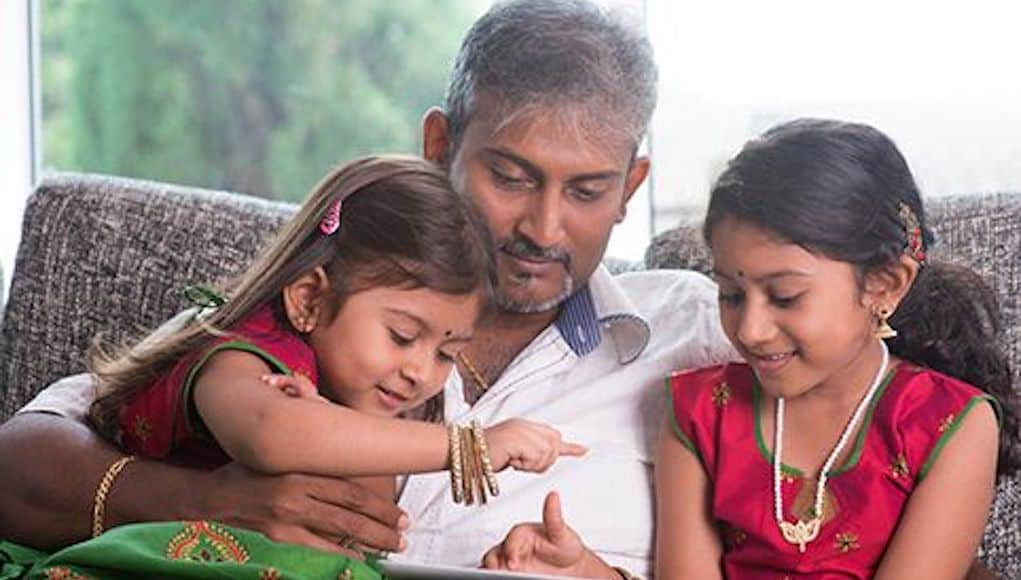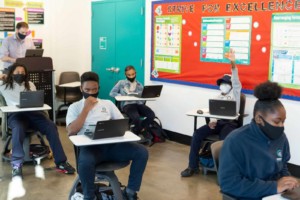Assume Good Intentions: Lessons for Responsive Family Engagement

The number of decisions that the average person makes in a day is seemingly countless. If that person also happens to be a parent or a teacher (or both!), then the number is even more unfathomable. Yet the decisions of parents and teachers are tremendously important and quite often have very serious consequences. Over time decisions are strung together and collectively make an impact that very often was never intended. Relationships between teachers and students as well as those between parents and children are affected by those accumulated decisions. The relationships between teachers and families are no different. Our experiences amass and before even encountering one another, our preconceived notions have begun to shape our interactions. And what psychology teaches us is that negative experiences outweigh positive experiences in our memories (Baumeister et al., 2001). This is the case for all involved–teachers, students, and parents.
As a middle and high school classroom teacher, I was always mindful to consider that I was most likely not the first teacher with which families had communicated. While each year presents a fresh start, those collected experiences are informing everyone’s expectations for the interactions we have. Because those interactions are largely teacher-initiated at many schools, I viewed the responsibility for setting the tone as mine. And while I always hoped that families’ experiences had been positive, I also knew that I couldn’t expect that. Each new year was a new opportunity to demonstrate my commitment and begin to build trust.
There were several guiding principles that informed my interactions with parents and families, and that I believe set me up for success. These principles were also helpful reminders as the school year wore on and we encountered the inevitable bumps in the road.
- Assume good intentions. This is perhaps the most important principle that I’ve held onto throughout my career, and it’s especially important when interacting with parents and families. If we assume the best of one another, then we’re more likely to ask questions and empathize rather than judge or discount families’ actions. Most parents, I’ve learned, are doing what they can to support their children and act in their best interest. Often, though, and for a variety of reasons, that’s not readily apparent. As teachers, we’re viewing parents’ actions through our own lenses. We know how we were raised and/or have defined what successful family engagement looks like based on our own experiences and understandings. In so doing, we’re more likely to misinterpret or misunderstand. We don’t know what’s happening in each family’s life or the barriers or challenges that families are working around each day. However, with time, a willingness to avoid judgment, and a conscious effort to learn about parents and families’ lives and approaches, teachers can come to understand and then engage in sincere dialogue that will ultimately benefit students. At the beginning of the year, I’ve asked parents and families to share some of their hopes and dreams for their children, and I’ve also asked for them to share the approaches they use to motivate, encourage, or re-focus their children. This gives me a frame and additional strategies on which to draw throughout the year. And by asking, I’m demonstrating that true engagement is a team endeavor that requires that I learn about and build upon the strategies they’ve used as they’ve raised their children.
- Generally, if we knew better, we’d do better. I still recall the first time I called home to talk to a parent about the challenges their son was having in my middle school ELA class. I had tried a variety of strategies and experienced little consistent success. I called home and when I explained what was happening, the mother replied by saying, “I know. I have the same struggle at home. I don’t know what to tell you. I’ve tried everything, even things I’ve done in the past, and nothing seems to be working.” Unfortunately, that wasn’t the last time I heard those sentiments, but it forced me to consider that parents are constantly learning about their children too, and middle schoolers can be different every day! Further, just because you’ve raised one child, doesn’t mean you’ll know exactly what to do for the next. We’re all learning and navigating this together, and what’s important is to continue to work as a team, with families, students, and other school resources being included in the team and remaining open to the dialogue. And then, once we gain ground and make headway, it’s important to share and celebrate together.
- Trust is built by saying what you’re going to do and then doing it. What’s at the core of all of our work, both with students and with families is trust. And trust, I’ve learned, begins with something simple–saying what you’re going to do and then following through. If you send a note home at the beginning of the year that says you’ll be making phone calls or planning home visits, then you’ve got to be prepared to do just that. If at a family conference, you tell families you’re going to follow up on something and get back in touch with them, you’ve got to do it. It may sound simple, but things get busy and what’s on our list gets lost or too much time passes, and soon we haven’t followed through. If we’re serious about fostering productive relationships, then we’ve got to have that foundational trust.
Together, these principles have led me to produce, often lasting relationships with parents and families. What I’ve learned through these relationships has not only benefited the particular child but has come to inform my practice in ways that I believe enhances the experience for even more children. My own awareness about the wonderful and varied ways that parents and families support and nurture children has grown tremendously, and because of that, my repertoire of strategies grown, and so, too, have I!
For more, see:
- How to Reduce Barriers to Family Engagement
- School’s Out: Engaging Family and the Community
- Promoting Family Engagement: 5 Ways to Foster Meaningful Connection
Stay in-the-know with innovations in learning by signing up for the weekly Smart Update.








0 Comments
Leave a Comment
Your email address will not be published. All fields are required.